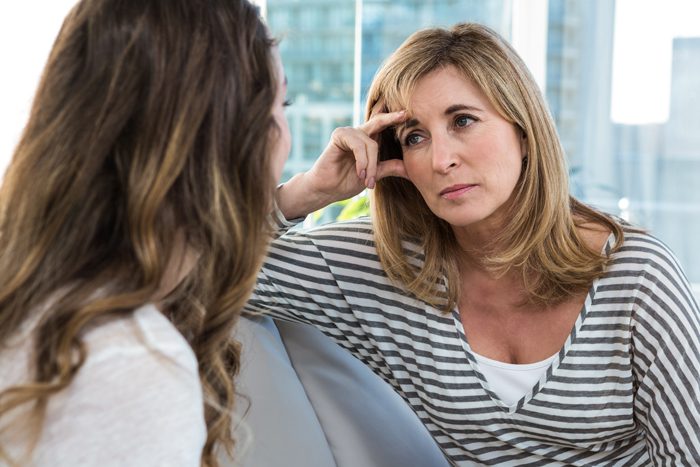By: Sandy Baker
It may be the biggest fear you have as a loved one of someone addicted to drugs.
You worry that one day you’ll find him or her unresponsive, unable to tell you what happened, and struggling to survive after an overdose. As a caregiver, friend, or family member, remember that you cannot control the behavior or outcome of a person’s actions. However, there are steps you can take to prevent overdose deaths. And, it also is important to know how to react if you suspect an overdose has occurred.
How Does an Overdose Happen?
An overdose occurs when a person consumes too much of a harmful substance. The body cannot handle the high amount of chemicals or the reactions they cause. This creates life-threatening symptoms, such as the inability to breathe or a lack of mental awareness. This puts an individual at risk of death. Any time at which a drug causes serious symptoms within the body that puts life at risk, an overdose has occurred.
The Centers for Disease Control and Prevention state that 64,000 people in the United States died from overdoses in 2016, including overdoses from prescription opioids and illicit drugs. That number has nearly doubled in the last 10 years.
There is no specific amount of a drug that defines when an overdose will occur. In some situations, smaller amounts can trigger an overdose just as larger amounts can. The way the body reacts determines if an overdose will occur. A person’s height, weight, age, and tolerance levels also play a role in when an overdose will occur. Their physical and mental health, and their level of hydration also contribute to when it may occur.
Recognizing Symptoms of an Overdose
As noted, it is not possible for you, as a caregiver, to prevent an overdose from occurring unless the individual simply stops using the drug of choice. However, what you can do is learn to recognize the symptoms of an overdose so you can take immediate action to potentially save a person’s life. Common symptoms include:
- Limited or no breathing
- Seizure-like activity with uncontrolled movements and jerky movements
- A loss of consciousness
- Lack of ability to focus visually
- Trouble staying awake even when prompted
Overdoses can be intentional or accidental. In every situation, they require immediate medical help. Call 911. Work to keep the person awake as much as possible while waiting for the ambulance to arrive. It is better that they fight with you to remain awake than lose consciousness. Watch their breathing, too. Follow the 911 operator’s instructions on how to provide CPR if they stop breathing. What you do in these seconds is critical to preserving brain function and saving the individual’s life.
Avoiding the Overdose: Getting Your Loved One Help First
Drug and alcohol use is an addiction not just controlled by a single factor. It is a physical demand within the body. It is also a mental dependency. It is not possible for many people to simply stop taking drugs or to never pick up a bottle of alcohol again. Punishing your loved one or condemning their actions is not going to solve the underlying situation. As a result, to prevent your loved one from suffering an overdose, you must encourage them to seek mental health support and detox. You can also focus on a few steps at home to minimize risks.
Monitor Consumption
Many overdose deaths are linked to overuse of a prescription drug. Monitor how much your loved one is taking compared to how much they should take. If they are overmedicating, whether on purpose or not, help them to regulate consumption and speak to their doctor.
Address Dependencies
In many situations, caregivers could be supporting a drug or alcohol habit unintentionally. You may believe that you are caring for your loved one by providing cash to pay their bills or helping them to maintain responsibilities. They may live in your home rent-free. To prevent overdoses from occurring, don’t allow them to have easy access to cash and support. This makes it harder to obtain the drugs that could put them at risk.
Insist on Mental and Physical Support
Depending on your role, you may recognize that there is no simple way for a loved one to stop using. No matter what you do or say, they find a way to use again. It’s not uncommon. However, the most profound step you can take to ensure your loved one does not overdose is simply to ensure he or she is getting help. Work closely with a mental health professional. Encourage them to go through detox to rid their body of the physical demand for the substance. Enter into counseling with them.
The only way to really prevent an overdose is to enter on the path of recovery. It could be just one more high that leads them to the emergency room facing a life-and-death situation. However, once they enter detox and begin on the path of recovery, your loved one may finally be able to overcome his or her struggles, and this reduces the risk of overdose occurring.
If your loved one may be overdosing right now, call 911 immediately. Do not wait.
At The Ranch at Dove Tree, our team is available to discuss with you how we can help you prevent overdose from occurring. Contact us immediately for 24/7 help.
Resources:
Overdose Death Rates. National Institute on Drug Abuse.
Opioid Overdose. Centers for Disease Control and Prevention.








